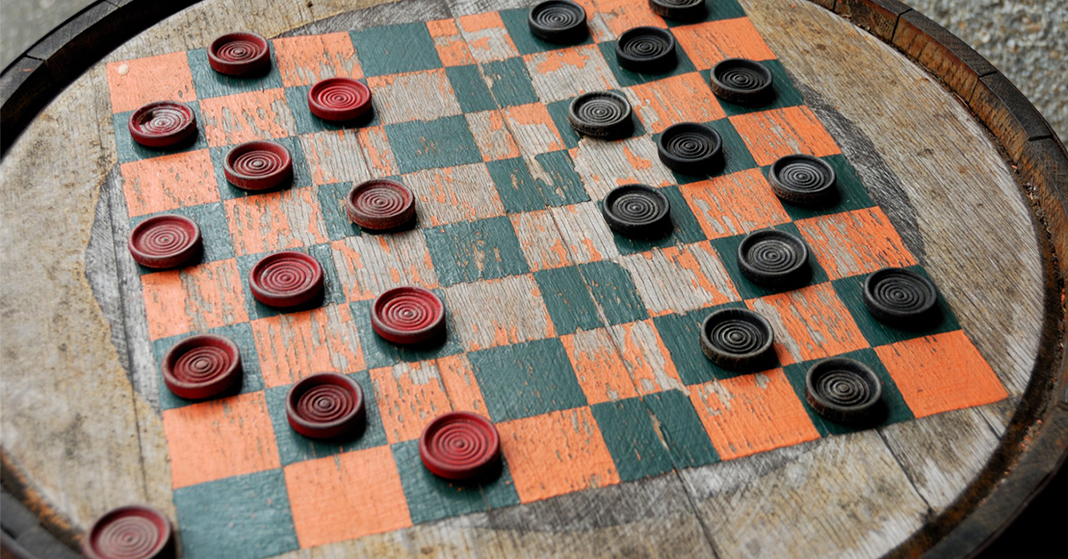
As a homeschool dad, I wonder about taking children who can’t read and preparing them for college. It seems like such a huge climb. How do we take five-year-olds and prepare them for what the Lord has planned without overwhelming them? To help with the process, I like to think about board games.
I’ve always enjoyed playing board games. I remember whiling away the summer hours with Monopoly and Risk. As an adult, I’ve come to enjoy playing Settlers of Catan. So I want to introduce my children to board games. But finding a game that engages everyone is challenging for two reasons.
1. It Can’t Be Too Hard
2. It Can’t Be Too Easy
If the game concepts are too complicated for my children to understand, they get frustrated and don’t want to play. But if the game concepts are too easy, they learn them quickly but soon lose interest because the game no longer challenges them. The best games are simple for everyone to begin playing. However, the best games have enough depth to them to accommodate the complex thinking of mature players. That’s why games like checkers have such longevity. They’re simple to learn, but as children grow they can use increasingly complex strategies.
Preparing children for what God has planned works in a similar way. If children are given concepts that are too intricate or abstract, they get frustrated and want to quit. If the material is too easy, the child gets bored and loses interest in learning. The best learning is carefully planned to be challenging without being frustrating.
Scope & Sequence
Curriculum publishers typically have a teaching plan called a “scope and sequence.” These documents are like maps that show a path through content that moves children step by step from awareness of material to mastery of the material.
If there were a scope and sequence for checkers, it would start with basic moves. For the child who has developed an understanding of how to move the pieces, the scope and sequence would include basic tricks for capturing pieces. Later, older players describe and model the broad strategies for winning the game. Finally, the child would have the opportunity to create his own strategy for winning. Then he can refine that strategy through playing with increasingly challenging opponents.
When it comes to homeschooling our children, we want a plan that keeps them engrossed in learning. The best plans increase the complexity of the materials in coordination with the child’s maturation.
Applied to History
I’ve enjoyed watching my daughter develop in her love for history. So teaching her in the evenings after work has been a special time for us. The BJU Press Heritage Studies curriculum does a terrific job of challenging her without being frustrating.
As she enters third grade, I’m excited to teach from the Constitutional Convention up to the Civil War. So much happened in that time period involving executive actions, legislative compromises, and judicial review—in other words, some complicated stuff.
But we’ve been preparing since first grade. Here’s how my daughter’s been getting ready, through the curriculum, to tackle the formative aspects of our nation’s history that we’ll cover in third grade.
First Grade Heritage Studies
In an introductory way, we covered local leaders, national leaders, rights, and voting.
Second Grade Heritage Studies
We returned to local, state, and national leaders, but we added more detail. The president, Congress, and judges were given more specific definitions. We learned that the Constitution guarantees our rights and our responsibilities to get involved in elections by voting.
To make this learning more concrete, we also role-played an election and wrote a “law” for our house.
Third Grade Heritage Studies
We’ll review the interplay of local, state, and national leaders. But now, we’ll add detail about how the legislative, executive, and judicial branches work together. This time, it’s within the context of the Constitutional Convention and the first presidency. So we can see how presidents administer policies through their cabinets and how Congress has two groups.
At this point, my daughter is ready for the drama of this early period. She’s ready to understand Hamilton and Jefferson’s fight over the national bank and ready to explore the legislative compromises that lead to the Civil War. She’s prepared to learn this material because we followed a plan. As in the game of checkers, the basic concepts were easy. Each step made the next one easier. It wasn’t simple, but the increasing challenge of the material has made it fun.
Take a look at the Scope & Sequence BJU Press offers, a game plan carefully designed to help your child be a winner.